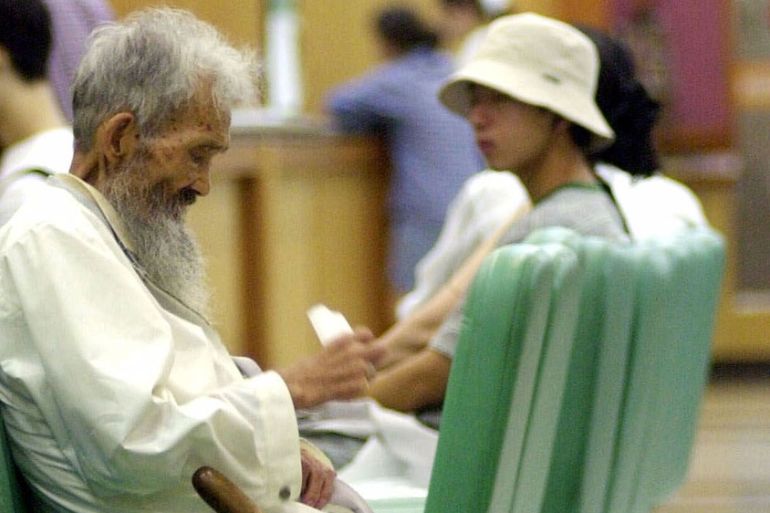Tens of thousands refuse ‘extension of life’ in South Korea
Since ‘dying-well’ law passed, nearly 35,000 South Koreans opted to die by refusing life-sustaining healthcare.

Tens of thousands of terminally ill patients decided to die without life-saving medical assistance over the past year after a new that allowed “dying with dignity” came into effect, a news report said on Wednesday.
The law went into effect on February 4 last year, allowing patients to sign up to forgo a “meaningless extension of life” by stopping or postponing four life-sustaining treatments, the Yonhap news agency reported.
Keep reading
list of 4 itemsDeadly Sahel heatwave caused by ‘human-induced’ climate change: Study
Woman, seeking loan, wheels corpse into Brazilian bank
UK set to ban tobacco sales for a ‘smoke-free’ generation. Will it work?
It took nearly two decades of national debate before the South Korean National Assembly passed the so-called “dying-well” law. The issue drew public attention after two doctors were convicted of assisted murder and given suspended prison terms in 1997 for ending the life of a brain-damaged patient at the request of his wife.
Since the law passed, 35,431 patients opted to die without receiving any further medical treatment, according to the Ministry of Health and Welfare.
Additionally, data also showed about 16,000 terminally ill patients have registered with authorities to opt out of receiving further life-saving medical assistance.
Another 113,000 people sent a letter of intent to hospitals and public organisations to stop receiving treatment once they become terminally ill.